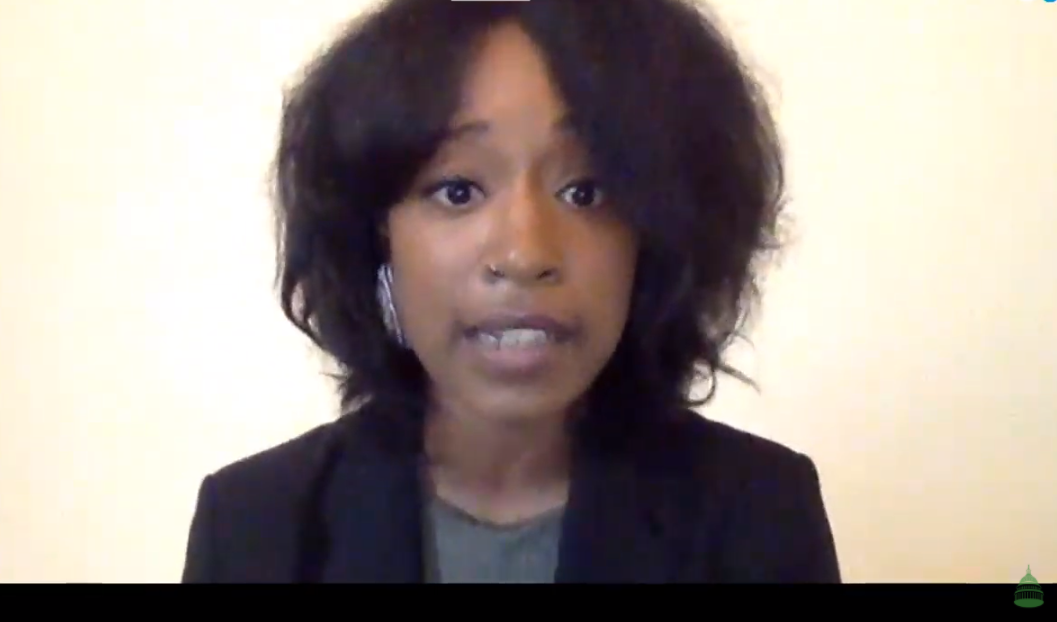Hill Gets Harrowing Story from Online Hate Crime Survivor
Dumpson Says Big Tech has been apathetic to problem

The smarter way to stay on top of the multichannel video marketplace. Sign up below.
You are now subscribed
Your newsletter sign-up was successful
Taylor Dumpson, a hate crime survivor and anti-racist activist provided inarguably the most compelling testimony in a Hill hearing Thursday (Sept. 24) on "Mainstreaming Extremism: Social Media's Role in Radicalizing America."
She said she knew firsthand how online hate can ruin lives and threaten physical, mental and professional safety.
Dumpson was the target of such hate after she was sworn in as the first black woman to be elected student government president at American University in Washington in 2017.
Related: Ex-Facebook Exec Likens Big Tech to Big Tobacco
She was the subject of a cyber-harassments campaign linked to her Facebook and Twitter pages. She called it an "unrelenting troll storm" by white supremacists and a "coordinated effort incited by a world-renowned neo-Nazi leader to intimidate, threaten, and harass me online."
That virtual harassment was triggered by someone who hung bananas from nooses around campus and was spread across social media platforms, websites, and chatrooms.
"Social media platforms such as Facebook have allowed the worst and most heinous elements of society into my home and my life, and into yours too. It’s created an open door to the kinds of people you would never allow anywhere near your loved ones in the physical world," she told the subcommittee.
The smarter way to stay on top of the multichannel video marketplace. Sign up below.
Coalition Says Safer Web Means No Sec. 230 Immunity
She said she now has trouble sleeping and that it has also taken a toll on the mental health of her friends and family, problems to which she says Big Tech continues to be apathetic. "As a result of this experience, I was diagnosed with post-traumatic stress disorder, anxiety, depression, and lost 15 percent of my body weight. Still today, more than three years later, I experience flashbacks and triggers, and am forced to take increased measures to protect myself and my family. The online hate and harassment forced me to change my daily routine, install video cameras at my house, drastically decrease my social media use, stop tagging my location in posts online, and even take self-defense classes."
She said she thought social media companies were culpable in the harm she has suffered. She made the point that the harassment continues to this day. She said she has to keep monitoring those to try and protect her safety.
Dumpson said that Congress should do three things: 1) encouraged increased hate crime reporting and data collection; 2) hold perpetrators accountable and better support survivors; 3) compel social media companies to be accountable and transparent.
Rep. Doris Matsui (D-Caliif.) said the discussion had been sobering but important . To Dumpson, she said: "You are very brave." That sentiment was echoed by a succession of legislators.
Contributing editor John Eggerton has been an editor and/or writer on media regulation, legislation and policy for over four decades, including covering the FCC, FTC, Congress, the major media trade associations, and the federal courts. In addition to Multichannel News and Broadcasting + Cable, his work has appeared in Radio World, TV Technology, TV Fax, This Week in Consumer Electronics, Variety and the Encyclopedia Britannica.

